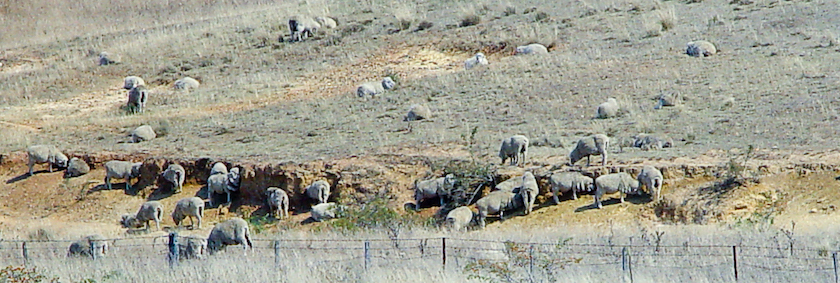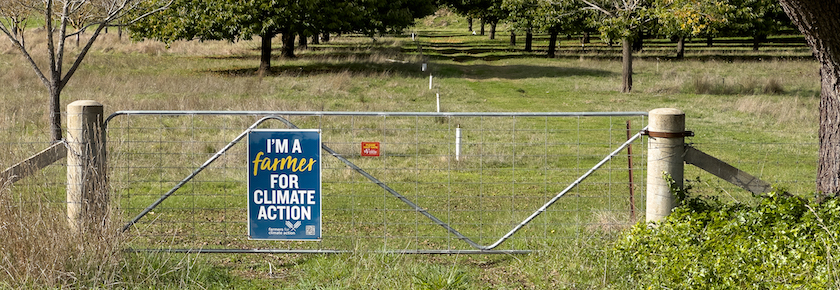Australia’s slow energy transition
At our present rate we won’t make our 2030 emissions reduction target
On the ABC’s Breakfast program Hamish Macdonald interviewed Ian Learmonth, CEO of the Clean Energy Finance Corporation about the challenge of meeting Australia’s 82 percent renewable energy target by 2030: Australia’s green bank says country is still behind renewable target. At our present rate of investment we won’t make it. Also, for a number of reasons, there is the possibility of power shortages later this year. (No, they aren’t to do with the Labor government’s supposed obsession with renewable energy.)
There are four impediments to meeting our target. They are all surmountable, but they will require more investment than we are currently outlaying.
One is the delay in Snowy 2.0, originally scheduled for completion in 2024. That completion date has pushed out to 2029. It might have been better had the project been cancelled, because the knowledge that a very large pumped hydro system will eventually come on line must have a chilling effect on other pumped hydro investments.
The second is the rise in interest rates, courtesy of the Reserve Bank, which is prepared to see reduced business investment as a means to reduce the growth in the consumer price index.
The third is the competitive pressure from the massive subsidies for renewable energy investments in America’s Inflation Reduction Act.
And the fourth is a delay in building the high voltage powerlines to connect the nation’s clean energy hotspots. That is the Rewiring the Nation scheme, the essential component in the AEMO’s Integrated System Plan. The $19 billion required for the powerlines is available to the CEFC, but there have been a number of NIMBY protests by farmers, delaying construction.
There is a short article by Tony Wood of the Grattan Institute on how to get the energy transition back on track, to meet renewable energy targets while containing energy prices. In order to meet renewable targets the government should be much more assertive in getting the transmission lines built, and it should get on with investments to ensure that the whole network is reliable through a difficult transition.
Another problem, which may turn out to be an opportunity, is that as small and medium scale batteries are installed, as rooftop solar continues its rapid expansion, and as people use electric vehicles for energy management, we may not need all those transmission lines.
Can we reduce our emissions by not cutting down trees?
Joseph Heller’s satirical novel Catch 22, about the absurdities of war and of government policies generally, describes a farmer who makes a fortune by doing nothing. The more alfalfa he doesn’t plant, the more subsidy he gets from the US Department of Agriculture.
Is our carbon credit scheme, one aspect of which is to pay farmers to refrain from putting stock on their land (“Human Induced Regeneration”), also worthy of satirical scorn?
To quote from the producers of the ABC’s 730 Report, Australia's most popular carbon credit scheme, Human Induced Regeneration, questioned by experts:
Unlike other methods of carbon farming, it doesn't involve planting trees. Rather, landholders are paid to stop whatever activity has been suppressing tree growth, whether that's clearing, grazing, farming, or feral animals, so that forests can regenerate.
Is it a real contribution to reducing emissions? Is it a rort? Or is it even extortion: “if you don’t pay us we’ll put carbon dioxide into the atmosphere”?
The program calls on eminent scientists, including Professor Andrew Macintosh, former chair of the Emissions Reduction Assurance Committee, and Professor Ian Chubb, former Chief Scientist. Macintosh is highly critical of the scheme, while Chubb believes it should be retained but made to work better. Macintosh generally supports carbon offsets (some environmentalists are strongly opposed to offsets) but is very sceptical about this particular scheme.
The emotive politics of renewable energy

Underloved and overgrazed, but please no powerlines (Monaro, NSW)
A few scraps of political reporting on renewable energy suggests that for many on the right, clean energy doesn’t have anything to do with climate change. Rather it’s about identity politics. Real men drive big gas guzzlers, burn hydrocarbons, and clear land, while weenies drive electric vehicles, use electricity from solar and wind sources, and hug trees.
The ABC’s New England staff report on an organized protest by farmers who turned up at the Bush Summit in Tamworth to rally against renewable energy, in a protest strongly supported by Barnaby Joyce. Some farmers claim that transmission lines will ruin their grazing land and will be an environmental blight. Apparently it’s OK to clear woodland, and to run sheep on Australia’s fragile and thin soils, but unsightly transmission lines will spoil the sublime bucolic beauty of our sheep farms.
Writing in Renew Economy Giles Parkinson describes the Nationals’ energy policy: Stop renewables and wait for nuclear: Nationals stunning rejection of science and industry. It’s hard to make much sense of the Nationals’ policy but it seems to go as follows. There isn’t really any urgency about doing anything about climate change, but if there is we should have nukes. And solar and wind installations are a terrible waste of good farming land.
Really? Perhaps solar installations may compete with cropping. But windmills and transmission lines have small footprints, and solar installations hardly interfere with grazing: in fact it is common to see sheep enjoying their shade on hot days.
The real reason why the Coalition backs nuclear, Mike Seccombe writes in the Saturday Paper, is that its policies on renewable energy are so muddled and contradictory, that it’s easiest to offer nuclear energy as a simple solution. Nukes can fit into our existing grids, they require none of the physical and market complexity of wind and solar, and they do not require storage. It’s a neat solution provided one ignores the cost of nuclear energy – it’s much more expensive per kWh than coal, which in turn is much more expensive than wind and solar. But as we have learned over the last twenty years, economics is not the Coalition’s strong point.
As for cars, as the ABC’s South West Victoria reporter points out, high gasoline prices are no deterrent to new car buyers in the country. Real men need real vehicles.

Fortunately most farmers understand climate change (Myrtleford, Vic)